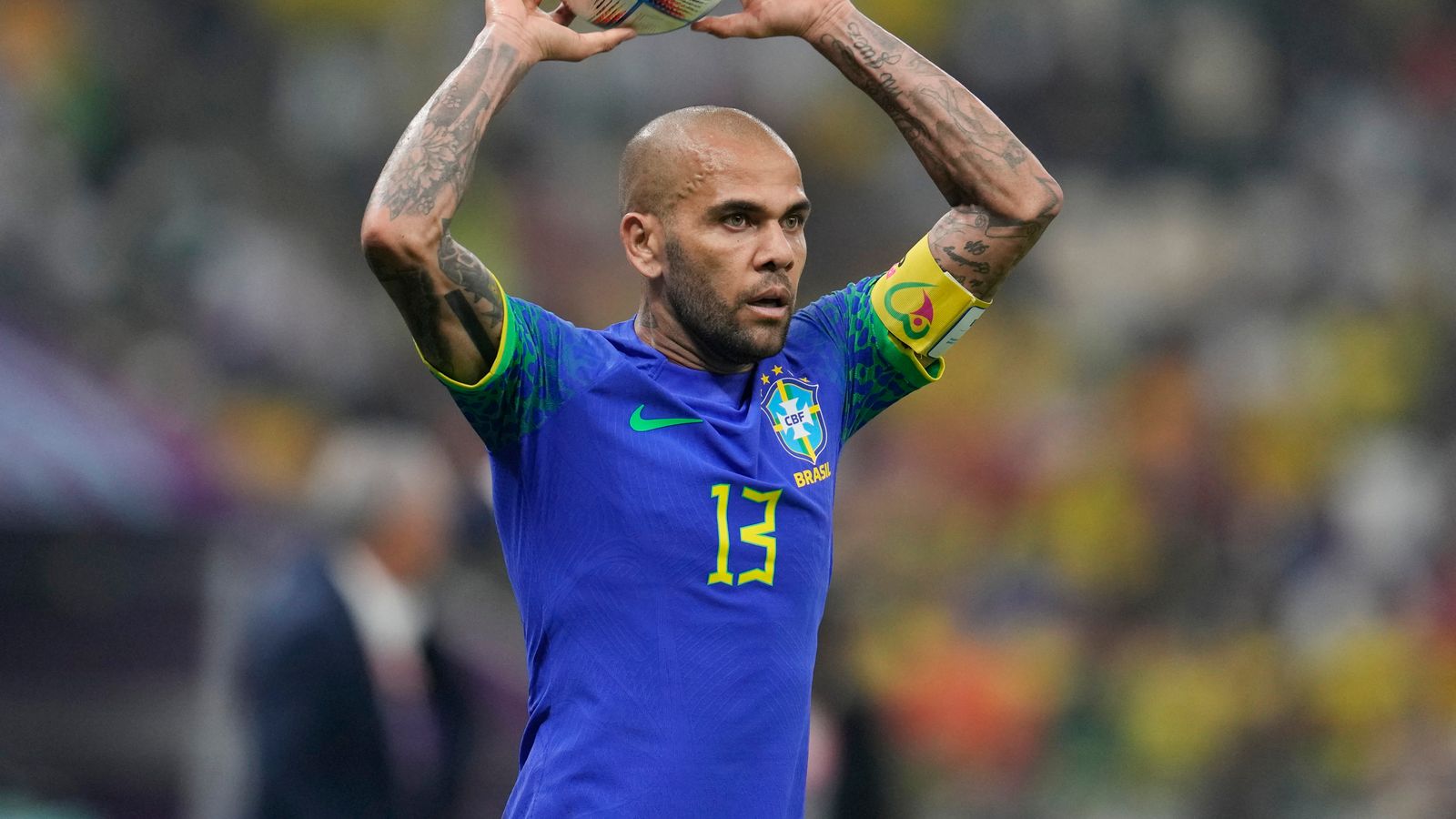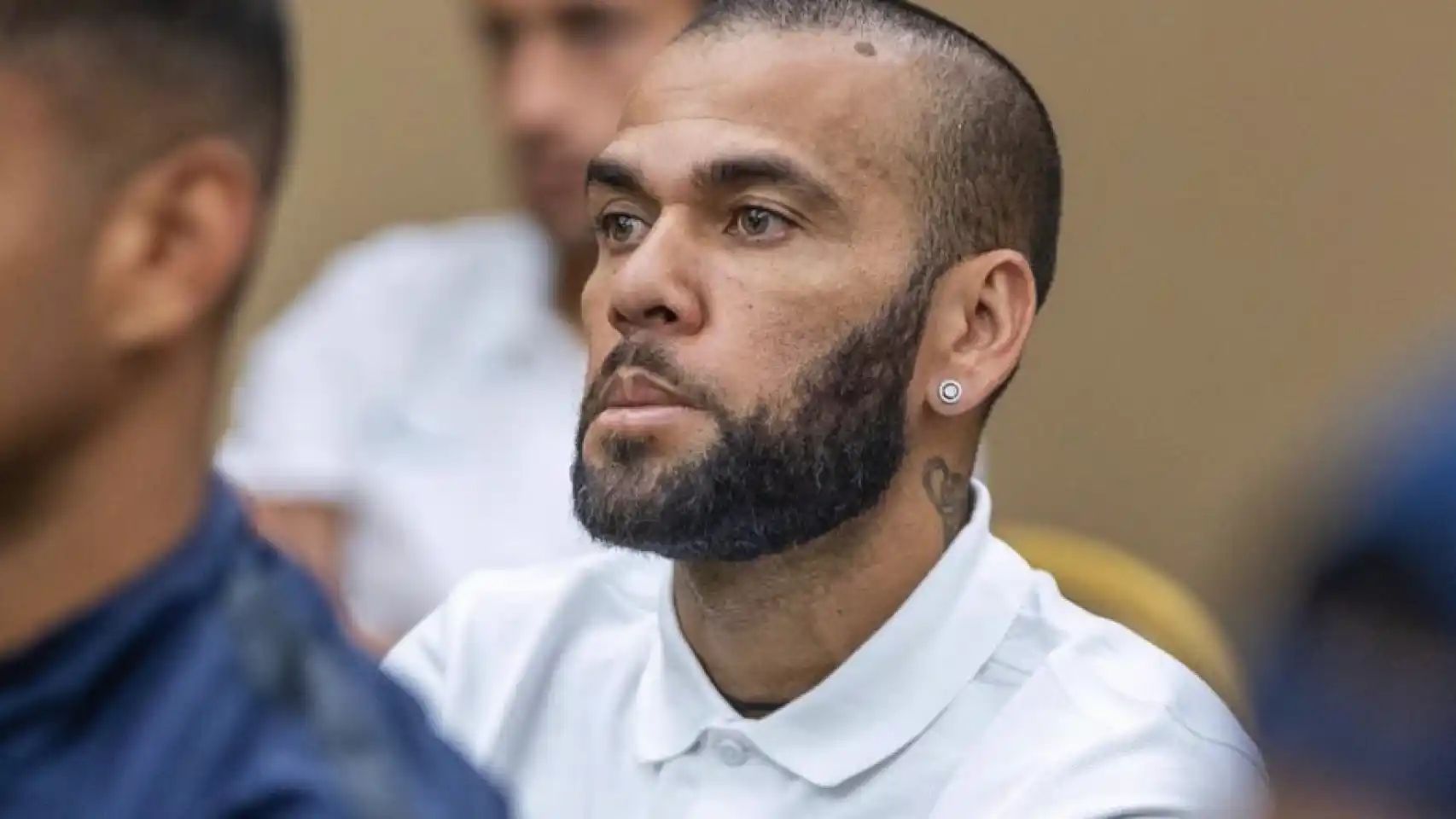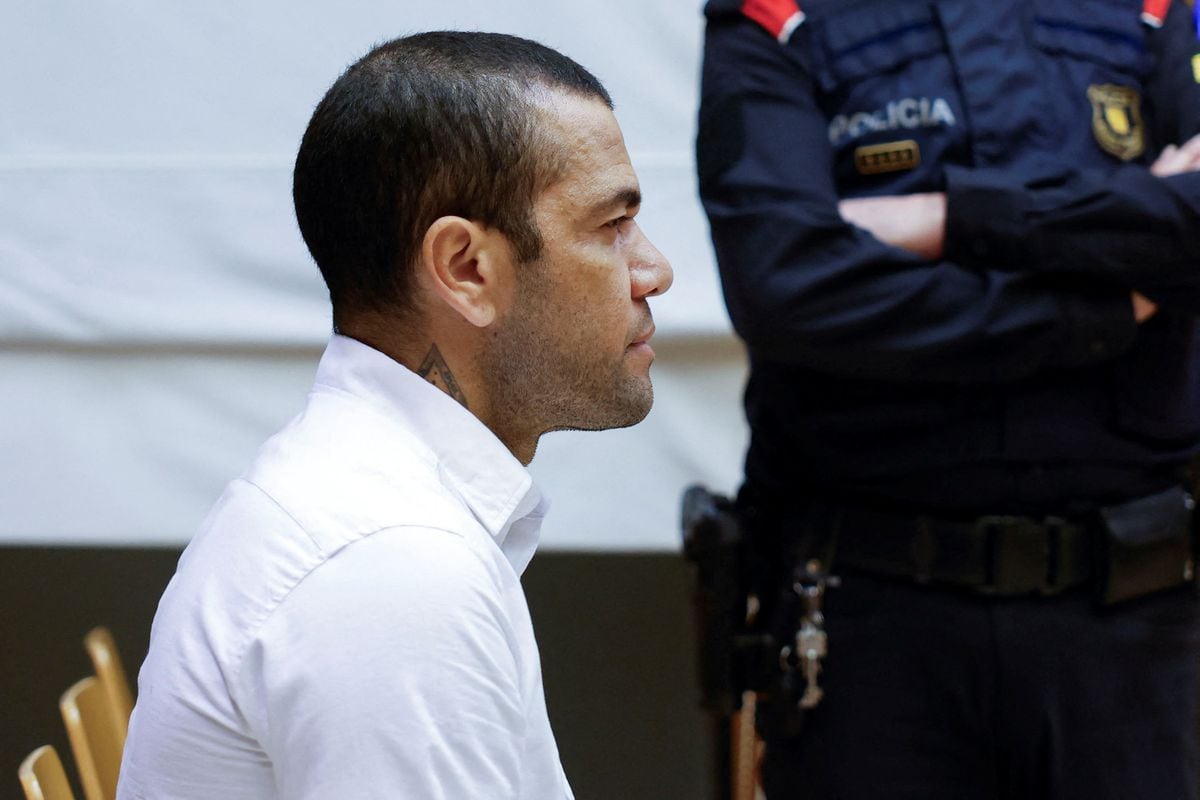Daniele Alves Aqui Agora: The Broadcast That Changed Brazilian TV
Table of Contents
- The Unforgettable Day: July 5, 1993
- Who Was Daniele Alves Lopes?
- Aqui Agora: A New Era of Brazilian Journalism
- The Live Broadcast: A Nation Watches in Horror
- The Aftermath: Legal Battles and Public Outcry
- The Legacy of Daniele Alves Aqui Agora
- The Name Daniele: A Brief Etymological Note
- Preventing Future Tragedies: Mental Health Awareness
The Unforgettable Day: July 5, 1993
The date of July 5, 1993, remains a dark chapter in Brazilian television history. On this day, a tragic event unfolded in the bustling central business district of São Paulo that would soon be broadcast across the nation. A 16-year-old girl, Daniele Alves Lopes, was observed on the ledge of an office building, seemingly contemplating suicide. What followed was a desperate standoff, watched not only by a growing crowd below but, controversially, by millions of Brazilians at home, as a television crew filmed the unfolding tragedy. The scene was one of intense tension and despair. For approximately 15 minutes, Daniele stood at the precipice, her fate hanging in the balance. Rescue efforts were reportedly underway, but a camera crew from the popular news program "Aqui Agora" was also present, capturing every agonizing second. The decision to air these images, either live or with minimal delay, would ignite a firestorm of criticism and fundamentally alter the discourse around media responsibility in Brazil. The sheer horror of the event, coupled with its widespread broadcast, ensured that the name "Daniele Alves Aqui Agora" would become synonymous with a profound ethical dilemma.Who Was Daniele Alves Lopes?
Daniele Alves Lopes was a Brazilian teenager, just 16 years old, when her life tragically ended on July 5, 1993. Prior to this fateful day, she worked as a receptionist in São Paulo. While the public narrative largely focuses on the circumstances of her death, it's crucial to remember that Daniele was a young individual with a life, hopes, and struggles, much like any other teenager. The details surrounding her personal life and the specific reasons that led her to that building ledge remain largely private, shrouded in the immense tragedy of the event. Reports from the time, including some mentioned in the provided data, alluded to her being "in love" as a possible factor, but such details are speculative and do not diminish the complexity of her situation. It is important to approach her story with sensitivity and respect for her dignity.Personal Details and Biography
To provide context, here are some known personal details about Daniele Alves Lopes: | Detail | Information | | :------------ | :------------------------------------------ | | **Full Name** | Daniele Alves Lopes | | **Date of Birth** | 1977 (Exact date not widely publicized) | | **Date of Death** | July 5, 1993 | | **Age at Death** | 16 years old | | **Nationality** | Brazilian | | **Occupation** | Receptionist | | **Place of Death** | São Paulo, Brazil | Beyond these basic facts, public information about Daniele's life is limited, which is often the case in such private tragedies. Her story became public due to the controversial broadcast, but her personal narrative remains largely untold, overshadowed by the ethical debate her death sparked within the media.Aqui Agora: A New Era of Brazilian Journalism
"Aqui Agora" (meaning "Here Now") was a groundbreaking and, at times, notoriously controversial telejournal program aired by the Brazilian television network SBT. Launched on May 20, 1991, to commemorate SBT's tenth anniversary, the show quickly carved out a unique niche in Brazilian media. Its format was distinct: a fast-paced, often sensationalist, and highly visual approach to news. Unlike traditional news programs that focused on politics and economics, "Aqui Agora" prioritized crime, social issues, and dramatic human interest stories, often presented with raw, unedited footage. The program's philosophy was to bring the news to the viewer "here and now," emphasizing immediacy and direct engagement with events as they unfolded. This style resonated deeply with a significant portion of the Brazilian audience, leading to consistently high ratings. "Aqui Agora" was presented by prominent figures such as Ivo Morganti and Christina Rocha, who became household names. Its success, however, was built on a foundation that often pushed the boundaries of journalistic ethics, a characteristic that would be brutally highlighted by the Daniele Alves incident. The show ran successfully until 1997, with a brief return in 2008, but its most impactful and infamous period was undoubtedly in the early to mid-1990s, culminating in the "Daniele Alves Aqui Agora" broadcast.The Live Broadcast: A Nation Watches in Horror
The broadcast of Daniele Alves Lopes's suicide by "Aqui Agora" was an event of unprecedented shock and controversy. On that day, as Daniele stood on the building's ledge, a camera operated by a reporter named José (as referenced in the data) captured the entire agonizing sequence. The decision by "Aqui Agora" editors to transmit these "exclusive images" was a pivotal moment, turning a private tragedy into a public spectacle. The program went ahead, showing the 16-year-old's final moments as she jumped to her death. The chilling phrase, "daqui a pouco o Aqui Agora vai mostrar as imagens chocantes de uma jovem pulando até a morte, atenção, São imagens exclusivas que não recomendamos para," translates to a warning that the shocking images were coming, but the broadcast proceeded nonetheless. The raw, unfiltered nature of the footage, coupled with the live or near-live transmission, meant that millions of viewers across Brazil witnessed the horrific event unfold in real-time. The impact was immediate and profound. The incident not only boosted the show's ratings, fulfilling its sensationalist agenda, but also plunged the nation into a collective state of disbelief and trauma. The images were indelible, creating a lasting scar on the public consciousness and within the annals of Brazilian media history. The very act of broadcasting such a private and devastating moment raised a multitude of ethical questions that continue to resonate today.Ethical Dilemmas of Live Reporting
The "Daniele Alves Aqui Agora" incident became a textbook case for discussing the ethical dilemmas inherent in live reporting, especially when dealing with highly sensitive and potentially harmful content. The core questions revolved around: * **The Public Interest vs. Sensationalism:** Was the broadcast truly in the public interest, or was it a cynical pursuit of ratings through sensationalism? Many argued the latter, condemning the exploitation of a young woman's final moments for entertainment. * **Privacy and Dignity:** The broadcast utterly stripped Daniele Alves Lopes of her privacy and dignity in her most vulnerable moment. It raised questions about the rights of individuals, even in public spaces, when facing extreme distress. * **The Role of the Media:** What is the media's responsibility in such situations? Is it to report every detail, no matter how graphic, or to exercise restraint and prioritize human well-being over breaking news? * **Potential for Imitation:** Experts and the public alike raised concerns about the potential for "copycat" suicides, a serious public health concern when suicide is graphically depicted. The incident forced a painful reckoning with these questions, highlighting the need for stricter ethical guidelines and a more humane approach to journalism.The Impact on Viewers
For those who witnessed the "Daniele Alves Aqui Agora" broadcast, the experience was deeply disturbing. The raw, unfiltered nature of the suicide left many traumatized. Parents struggled to explain what they had seen to their children, and the collective shock reverberated through society. The event became a topic of intense conversation in homes, schools, and workplaces, underscoring the power of television to both inform and profoundly affect its audience. The memory of that day, and the images associated with it, became a haunting reminder of the boundaries that should, perhaps, never be crossed in the pursuit of news.The Aftermath: Legal Battles and Public Outcry
The immediate aftermath of the "Daniele Alves Aqui Agora" broadcast was a torrent of public outcry and severe criticism directed at SBT and the "Aqui Agora" program. The sheer audacity of airing such a graphic and tragic event ignited a national debate about media ethics, responsibility, and the limits of what should be shown on television. This widespread condemnation quickly translated into legal action. In September 1994, the parents of Daniele Alves Lopes filed a lawsuit against SBT, seeking R$1 million (Brazilian Reais) in moral damages. This legal battle was a landmark case, as it directly challenged a major television network on the grounds of emotional distress caused by their broadcast. The lawsuit argued that the network had exploited their daughter's tragedy for ratings, causing immense suffering to the family. The legal proceedings were widely followed and put significant pressure on SBT. While the exact outcome of the R$1 million lawsuit in terms of full payment is complex and might have involved settlements or appeals, the provided data clearly states that "O Aqui Agora foi enfraquecido com o processo de 1 milhão de reais por danos morais que o SBT recebeu dos advogados dos pais de Daniele Alves, em setembro de 1994." This indicates that regardless of the final financial settlement, the legal challenge itself had a substantial negative impact on the program's reputation and standing. It served as a powerful public rebuke and contributed to a re-evaluation of the show's controversial methods. The incident became a prime example of the potential consequences faced by media outlets when they cross ethical lines, underscoring the importance of public accountability and legal recourse for victims of media sensationalism.The Legacy of Daniele Alves Aqui Agora
The "Daniele Alves Aqui Agora" incident left an indelible mark on Brazilian television and media ethics. It became a critical turning point, forcing broadcasters and the public alike to confront the ethical implications of live, sensationalist reporting. While "Aqui Agora" initially saw a ratings boost, the long-term consequences for the program and the industry were profound. The public outcry and the subsequent lawsuit against SBT highlighted the significant power of public opinion and legal action in holding media accountable. In the years that followed, there was a heightened awareness regarding the portrayal of sensitive events, particularly suicides, on television. While sensationalism did not disappear entirely from Brazilian media, the Daniele Alves case served as a stark reminder of the potential for severe backlash and legal repercussions. It contributed to a more cautious approach by some broadcasters, pushing for greater editorial control and a re-evaluation of what constitutes "news" versus exploitation. The memory of the "Daniele Alves Aqui Agora" broadcast continues to serve as a cautionary tale, frequently referenced in discussions about media responsibility and the ethical boundaries of journalism.Media Ethics and Sensationalism
The case of Daniele Alves Lopes and "Aqui Agora" is a quintessential example in the ongoing debate about media ethics versus sensationalism. It demonstrated how the pursuit of high ratings and "exclusive images" can lead to a profound disregard for human dignity and the well-being of individuals involved in tragic events. The incident underscored the critical importance of ethical guidelines in journalism, particularly concerning: * **Informed Consent:** While not directly applicable to a public suicide, the principle of not exploiting individuals in distress is paramount. * **Minimizing Harm:** Journalists have a responsibility to minimize harm to their subjects and audience. The "Aqui Agora" broadcast was widely seen as failing this principle catastrophically. * **Accuracy and Context:** While the broadcast was "accurate" in showing what happened, it lacked the necessary context and sensitivity, reducing a human tragedy to a shocking spectacle. This event continues to be a reference point in media studies, emphasizing the need for robust ethical frameworks that prioritize human values over commercial gain.A Cautionary Tale for Broadcasters
For broadcasters worldwide, the "Daniele Alves Aqui Agora" incident stands as a potent cautionary tale. It illustrates the immense power and responsibility that comes with controlling the airwaves. The lessons learned (or, in some cases, re-learned) include: * **The Power of Public Backlash:** Public opinion can significantly impact a program's reputation and a network's standing. * **Legal Consequences:** Ethical breaches can lead to costly and damaging legal battles. * **Reputational Damage:** The long-term damage to a brand's credibility can be irreversible. * **The Need for Internal Review:** Broadcasters must have clear internal policies and strong editorial oversight to prevent such incidents. While the media landscape has evolved dramatically since 1993, with the rise of social media and citizen journalism, the core ethical challenges highlighted by the "Daniele Alves Aqui Agora" case remain highly relevant. The temptation to chase viral content or shocking visuals is ever-present, making the lessons from this historical event more pertinent than ever.The Name Daniele: A Brief Etymological Note
While the focus of this article is on the tragic historical event involving Daniele Alves Lopes, it's worth noting the general meaning and origin of the name "Daniele" itself, as mentioned in some of the provided data. "Daniele" is a multifaceted name with rich origins. It is primarily an Italian male given name, serving as the cognate of the English name "Daniel." However, "Danièle" (with an accent) is also a French female given name, an alternative spelling of "Danielle." The name derives from Hebrew elements, meaning "God is my judge" or "God is my strength." People with this name are often seen as confident, determined, and possessing qualities of strength, wisdom, empathy, and divine protection. It is a name that inspires confidence and encourages personal growth. While these positive attributes are associated with the name "Daniele" generally, it is important to separate the etymological meaning from the tragic circumstances of Daniele Alves Lopes's life. Her story is not defined by the inherent meaning of her name, but by the specific, harrowing events that unfolded on that fateful day in 1993, and the profound impact of the "Daniele Alves Aqui Agora" broadcast on media ethics.Preventing Future Tragedies: Mental Health Awareness
The tragedy of Daniele Alves Lopes, and the subsequent "Daniele Alves Aqui Agora" broadcast, serves as a stark reminder of the profound importance of mental health awareness and suicide prevention. While the media's role in the specific incident was highly controversial, the underlying issue of mental distress leading to such desperate acts is a critical societal concern. It highlights the urgent need for accessible mental health support, early intervention, and a compassionate approach to individuals struggling with their well-being. When media outlets report on suicide, there is an ethical imperative to do so responsibly, avoiding sensationalism and providing helpful resources. Guidelines from public health organizations consistently advise against: * **Graphic Details:** Avoiding explicit descriptions or images of the method of suicide. * **Glorification or Romanticization:** Presenting suicide as a solution or an act of courage. * **Simplistic Explanations:** Recognizing that suicide is complex and rarely attributable to a single cause. * **Large Headlines or Repeated Coverage:** Limiting exposure to avoid normalization or contagion. Instead, responsible reporting focuses on: * **Providing Context:** Discussing the broader issue of mental health. * **Offering Hope:** Highlighting that help is available and recovery is possible. * **Including Resources:** Providing contact information for crisis hotlines and mental health services. * **Emphasizing Prevention:** Focusing on what communities and individuals can do to support those at risk. The "Daniele Alves Aqui Agora" incident, while a historical media event, indirectly underscores the ongoing need for a society that prioritizes mental health. It serves as a somber reminder that behind every statistic and every news story, there is a human life, often struggling in silence. By fostering open conversations about mental health, reducing stigma, and ensuring that support systems are robust and accessible, we can work towards preventing similar tragedies and ensuring that individuals in distress receive the help they desperately need. This collective effort is far more valuable than any sensationalized broadcast.Conclusion
The story of "Daniele Alves Aqui Agora" is a powerful and unsettling chapter in the history of Brazilian television. It encapsulates a moment when the pursuit of ratings collided tragically with human dignity, leaving a lasting scar on the public consciousness and forcing a re-evaluation of journalistic ethics. The broadcast of Daniele Alves Lopes's suicide on July 5, 1993, by SBT's "Aqui Agora" program, ignited a national debate that resonated for years, leading to legal challenges and a heightened awareness of media responsibility. This incident stands as a potent reminder of the immense power of television and the critical need for ethical boundaries in reporting, especially when dealing with sensitive and vulnerable situations. While the media landscape has evolved dramatically since 1993, the core lessons from the "Daniele Alves Aqui Agora" case remain profoundly relevant: the imperative to prioritize human well-being over sensationalism, the importance of public accountability, and the enduring impact of media choices on individuals and society. It is a historical event that continues to serve as a cautionary tale, urging all in media to consider the profound implications of their actions and to uphold the highest standards of compassion and responsibility. We encourage you to reflect on the ethical considerations discussed in this article. What are your thoughts on the role of media in reporting sensitive events? Share your perspectives in the comments below, and consider sharing this article to foster further discussion on media ethics and mental health awareness.- Daniel Craig Broadway
- Chris Daughtry Hair
- Sandra Bullock Met Gala
- Lecy Goranson Becky Roseanne
- Jeff Bridges And Lloyd Bridges

Dani Alves: Former Barcelona and Brazil defender investigated over

Convicted rapist Dani Alves posts video training at Barcelona facilities

Soccer star Dani Alves testifies he did not sexually assault his